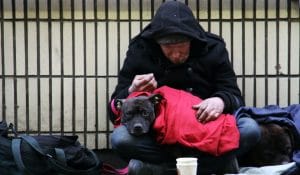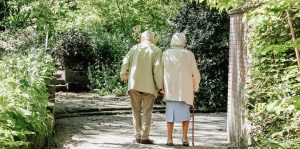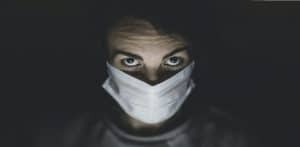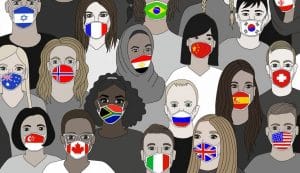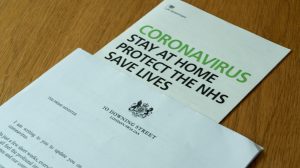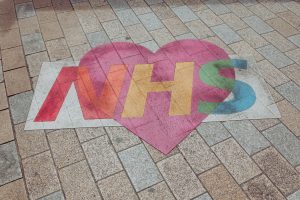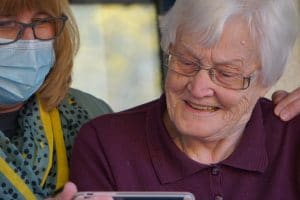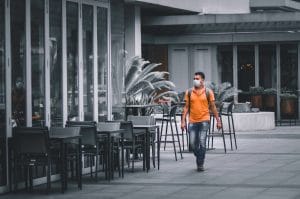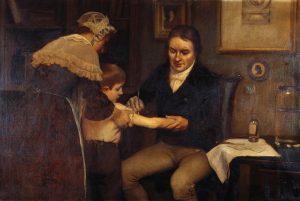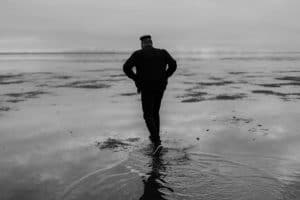"Nexus is a powerful, brilliantly acted film [...] about the impact of COVID-19 on young people's mental health, eating-related coping strategies, and the power of social connection. I recommend sharing it with colleagues, patients, and their families."
Balancing individual freedom with public health interests and the economy remains a delicate and fraught endeavour. However, Carmen Schmechel and her colleagues remind us that there is nothing new under the sun.......
The burden of the COVID-19 pandemic has been shouldered by the most vulnerable. Far from being the great equaliser, the pandemic has simply exacerbated health and social inequalities for the homeless. Jatinder Hayre calls us all to action to find practical solutions
A recent report by SAGE suggests high rates of vaccine hesitancy in Black, Pakistani and Bangladeshi groups. The reasons underlying a higher degree of vaccine hesitancy in such communities are complex and varied. Julia Darko helps us to understand and navigate the
Patients being treated for cancer during the Covid-19 pandemic face a double challenge. Feryad Hussain talks us through the issues and suggests the best ways to help.
COVID-19 is bad enough. And we know there will be a mountain of clearing up to do later. Richard Armitage tells us about the impact of the pandemic on rheumatology referrals from general practice in England.
There is a growing realisation that Long-COVID can also occur in children, with numerous physical symptoms and emotional consequences. NHS England now recognises that Long COVID in children needs urgent evaluation, and as GPs we need to help children and their parents
Louise Dubras reflects on Covid vaccination. We give more than a vaccine. We give hope. We also give a healing encounter, a touch that starts their return to being in the world.
Perhaps Primary Care will after all become the restorers of ‘normality’. Whatever happens, we will still be here. We will still be listening; still validating lives. Emma Ladds reminds us why, despite Coronavirus, General Practice is still the best job in the
Peter Aird has been vaccinating the frail elderly against Covid-19. He reflects that if we view the old or clinically vulnerable as of less value than the young and strong, then we open the door to a world where the aged and
What will you do if ALL of your admin, reception and managing team are absent due to being possible COVID contacts? Rubia Usman survived, and tells us how she did it.
What will the state of the nation's health be when Covid is over? Fatima Nadeem warns us that it is not looking good, and gives us some practical suggestions.
Referrals for specialist dementia assessments, substantially decreased in April 2020 and May 2020, coinciding with the first COVID-19 lockdown. Richard Armitage examines yet another issue arising from service disruption due to covid.
If we believe that vaccination is the way out of the Covid-19 pandemic, then Julia Darko tells us we must first address the elephant in the room......
Editorial comment. Today we publish two articles exploring why the intention to be vaccinated against Covid-19 is very significantly lower in some of the ethnic minority population, many of whom are at greater risk from the disease.
Might the pandemic already be slowing down? Samar Razaq looks at the figures.
Why have there been so many more Covid-19 deaths in the UK than in France? Peter Toon, with a foot in both countries, explores the reasons.
Though the COVID-19 vaccine is reported to have no side-effects, it's introduction has resulted in great anxiety and perhaps even anger for some. Dr Afiniki Akanet, GP and author, writes on the complex emotions felt by those who have been prioritised for
The UK government's response to the COVID-19 pandemic has been slow, incompetent, and irresponsible, most notably in regards to delivering effective and realistic communication. Judith Dawson reflects on the current state of affairs, where far too many competent adults are choosing to
Smoke bombs in cars, Channel 4 film crews, and depositing rocks in car parks — this is the bizarre story of James Douglas's research into the development of PPE.
A recent patient survey exploring concerns relating to COVID-19 by Helen Burn and colleagues provides some illuminating findings, with 27% of responders stating that they would not accept a vaccination for COVID-19, and one in two responders experiencing mental and physical health
Tiers before bedtime! Samar Razaq reflects on the government's struggle to communicate its policy on COVID restrictions.
The UK Government's dependence on the private sector when outsourcing COVID-related contracts has resulted in a number of costly disasters. Here, Judith Dawson reveals the lack of accountability and obligation the private healthcare sector have towards both their patients and consultants, and
To adapt to the demands of COVID “digital-first” models of care (i.e. telephone, video, online) have been implemented to minimise face-to-face contact between patients and providers. Ana Luísa Neves and collegues ask a simple question - are we listening to what patients want?
How can primary care be improved upon to aid patients and the burden on secondary care during the COVID-19 pandemic? Luis Ayerbe and colleagues discuss how clinical interventions, delivered in the community, from the moment of diagnosis, could reduce the need for
How do remote consultations work for Foundation trainees in general practice, who suddenly find themselves working in an unfamiliar environment? Emilie Dobler, an FY2, describes the methods of training used during their GP rotation to best prepare them for a future where
There is an increased risk of frontline healthcare workers developing mental health problems during the COVID-19 pandemic. Could Meditation Help? William Van Gordon examines the evidence.
Martin Edwards and Anjna Harrar review this polemical but important book. It is devastatingly critical of the government, its advisors and Public Health England in its analysis of the early months of the COVID-19 crisis in Britain.
Covid-19 has had a major impact on the provision of all health care services. Have Primary Care Networks had a role to play in helping GP practices to adapt? Sarah Parkinson and Judith Smith talked to leaders from four PCNs across England
Are GPs prepared for a future dominated by remote consultations? Ruth Chambers and her colleagues present results from their survey into the effectiveness of learning sets that help GPs to develop their video-consultation skills.
Why is it that risk is perceived differently by different people? During the COVID-19 pandemic there have been largely conflicting responses, both on an individual and national scale. Samar Razaq explores this question in light of the current pandemic and argues that
We are all hoping for a Covid vaccine that works. But even if we get one, will it be that simple? Ramiro Gilardino and Victoria Malek-Pascha consider five critical issues.
It has been well reported that those in the community and end-of-life care have been hardest hit by the COVID-19 pandemic, but little attention has been given to GPs and district nurses working in end-of-life care and the positive stories they have
Numbers have no voice. We, however, give them meaning. Using numbers we can twist the narrative to suit the point we want to make. Following his spectacular rise on social media Samar Razaq investigates the dark arts of manipulation, politics and statistics.
The Welsh government is introducing prescriptive guidelines regarding access to GPs. Susan Goodfellow and Gareth Thomas examine their wisdom, and explore possible alternatives.
Boris Johnson announced plans to carry out up to 10 million tests in a day to allow people who are negative to be able to continue with their life as normal. This "moonshot" is planned to be financed to the tune of
2020 will be remembered as the year of Covid-19, a global pandemic that has touched the lives of more human beings than any disease in human history. Life around the world began to change.
Not long following the horrors of the Ebola outbreak in 2014, Liberia now faces the COVID-19 pandemic. Michael Bryant, medical director of ELWA hospital in Liberia, describes the day-to-day struggle to provide quality care for patients in an already critically strained healthcare
Simon Morgan reflects on how travel and his travel medicine practice have been derailed in the pandemic.
As the country is gripped by fear of a new pandemic it places doctors and other healthcare workers once again in the spotlight. There is understandable fear amongst the public about the nature of the current pandemic and how it may affect
Louise Stone (@GPswampwarrior) is an Australian GP with clinical, research, teaching and policy expertise in mental health. t would be nice if the world of mental health fell neatly into a taxonomy. It would be nice if we could, as Plato wrote,



